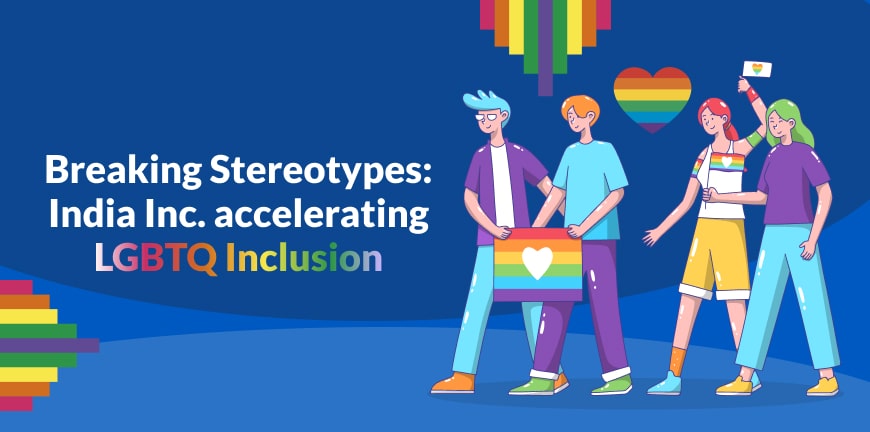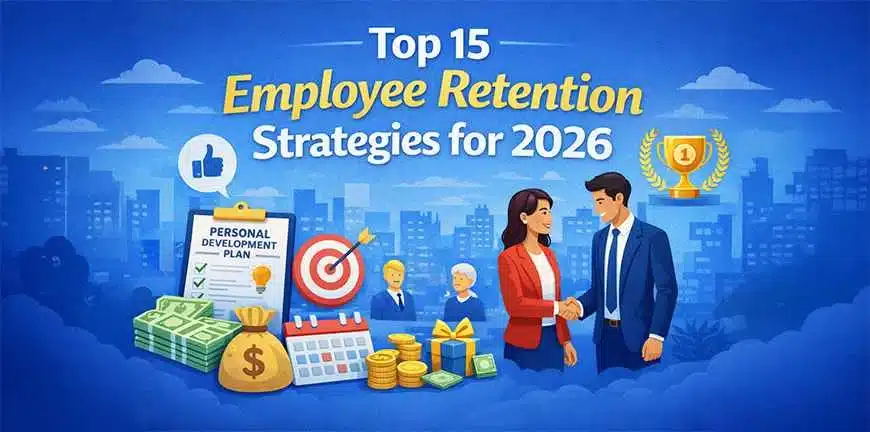Talent Crunch in India’s Semiconductor Industry: How to Bridge the Gap?
02/06/2025
Top 5 Industries in Japan Hiring Japanese-Speaking Indians
02/06/2025“LGBTQ inclusion isn’t just about equality—it’s about business excellence.”— Tim Cook, CEO, Apple.
As the world and global leaders recognize the significance of this quote, India Inc. is also set to redefine rules and script new stories. It is not about reforms being made in boardrooms or balance sheets but transforming the DNA of workplace culture. Embracing the LGBTQ+ workforce is a brave and revolutionary phenomenon occurring in corporate corridors.
Once a taboo even to whisper about it and largely ignored, the issue is now hogging the limelight and LGBTQ representation is becoming an integral part of diversity and inclusion (D&I) strategies. Progressive organizations are done with just ticking off checkboxes, they are transforming mindsets and creating workplaces where everyone equally belongs.
The Pivotal Transition
In 2018, India witnessed a historic moment for LGBTQ rights when the Supreme Court announced the decriminalization of Section 377. This was the turning point where a bold message was sent to institutions and corporations across the nation. Corporate India saw this as a wake-up alarm and an opportunity.
The interesting transition that followed was a change in the mindset and forward-thinking enterprises began acknowledging the LGBTQ+ community as an intrinsic part of their talent pipeline triggering them to craft and reshape inclusive policies and environments conducive to the previously underrepresented lot.
City Ratings 2025: Indian metros such as Mumbai, Delhi, Bengaluru, Chennai, and Hyderabad received a “C” rating for LGBTQ+ inclusion, outperforming many Asia-Pacific cities.
Making Inclusion Tangible
Inclusion is no longer symbolic it is about making changes in the system itself. Let us see how India Inc. is making that happen:
Equal Hiring Opportunity
There is an ongoing trend of various companies initiating hiring drives for LGBTQ individuals targeting transgender candidates, who often are victims of unreasonable obstacles to employment and economic independence. This bold approach is a firm statement of intent. These organizations are proactively righting the wrong and modifying the historical imbalances rather than simply drafting non-discrimination policies.
Gender-Neutral Infrastructure
Workplaces across India are evolving and embracing inclusivity but a vital aspect that requires attention is the creation of gender-neutral infrastructure. It is not just about physical alterations but providing a sense of dignity and respecting gender identity.
To promote safety and dignity companies are building gender-neutral restrooms, spaces that any individual can utilize regardless of their gender identity. Another major step taken by companies today is implementing gender-neutral dress codes.
Sensitivity Training
Companies are accepting and welcoming the concept of diversity and inclusion (D&I) in the true sense of the term and thus sensitivity training becomes essential especially for LGBTQ+ employees.
These trainings are no longer mere HR exercises anymore they are business strategies. The training must make individuals aware of gender identity, sexual orientation, and expression. Address unintended bias, microaggressions, and presumptive opinions that often go unchallenged.
Inclusive Benefits
Reforming hiring practices and making statements regarding inclusion in the workplace is not the only initiative. It must be integrated into the daily experiences and well-being of employees. One of the most tactical ways companies can drive purposeful LGBTQ+ inclusion is by offering equal, inclusive employee benefits catering to the diverse requirements of their workforce.
For example, offering insurance policies covering same-sex partners, mental health support, etc highlighting a deeper cultural transition towards a fair, dignified, and respectable workspace.
Employee Resource Groups (ERGs)
In inclusive workplaces today, a pivotal role is played by Employee Resource Groups (ERGs) in restructuring a culture of belonging and advocacy. These employee-directed groups create safe spaces for undervalued communities, offering a safe space psychologically where employees can share their experiences and challenges without being judged.
The groups help these communities to address various issues including navigating complexities in the workspace, dealing with external societal factors, and many more. They often partner with leadership and HR managers and influence policy advancements.
Persisting Challenges
Strides have been made but we still have a long way to go as many individuals remain cornered due to the social stigma and repercussions. The resistance is especially experienced in tier-2 and tier-3 cities, where the acceptance level might be slower due to cultural conservatism.
There are major inconsistencies still in how inclusion is exercised. Many multinationals and large corporates have adopted policies early, however; many small and medium enterprises (SMEs) are yet to begin integrating LGBTQ policies. Another pressing challenge is the absence of legal recognition for same-sex unions restricting the extent of benefits that companies can offer.
The Business Case
Diversity is the engine for driving businesses and not just a moral imperative. According to surveys and studies, companies initiating inclusive practices enjoy higher employee retention rates, enhanced employee engagement, and better outcomes in terms of innovation and fresh perspectives.
There is a cohesive work culture when LGBTQ employees feel respected and safe bringing a positive wave of work fostering better performance and productivity.
72% of allies prefer jobs at LGBTQ-supportive companies, indicating inclusion attracts talent and boosts innovation.
From the business viewpoint, consumers and investors favor brands that cater to inclusive values. Companies walking the talk on inclusivity and diversity often enjoy a robust reputation and are trustworthy in the eyes of stakeholders.
Championing LGBTQ Inclusion
- Tata Steel introduced a comprehensive LGBTQ+ inclusion policy that offers same-sex partners benefits
- Godrej Group with its “Culture Lab” and campaigns foster dialogue around gender and sexuality in the workplace.
- Infosys and Wipro updated their policies to recognize same-sex partners
- Accenture, IBM, and Capgemini have global benchmarks for inclusion and have actively localized their strategies for the Indian context
Building a Noteworthy Inclusive India Inc.
The sustenance and maintenance of the momentum of inclusion is possible if it is embedded in the bloodstream of organizations and not just on paper. A transparent leadership commitment with clear inclusion metrics and constant continuous engagement with LGBTQ communities is key.
Businesses must also consider collaborating with NGOs, advocacy groups, and inclusive hiring platforms enabling bridging gaps between intent and implementation. Education is also instrumental in creating awareness.
There can be programs where LGBTQ modules should be introduced by business schools, and HR institutes to spread awareness and ensure a safe and inclusive world for future leaders.
India Inc. is not just busting age-old prototypes but designing a future where quality talent is recognized and cultivated without bias. Inclusion is a business strategy and not just a slogan.
The undeniable momentum is creating waves although challenges remain. However, with more companies stepping up, the workplace is transforming into a powerful and meaningful hub for real and long-lasting societal change where every human regardless of identity, has the scope to grow, lead, and belong.
Contact Us For Business Enquiry

Rajkumar Shanmugam
Rajkumar Shanmugam is the Head of HR at ALP Consulting, bringing over 19 years of comprehensive HR leadership experience across India and international markets. His expertise spans talent acquisition, employee relations, performance management, compliance, and HR transformation. Rajkumar has a proven track record of driving people-centric initiatives, enhancing workplace culture, and aligning HR strategy with business goals. With extensive experience in US staffing operations and global mobility, he continues to lead organizational excellence through innovation and employee engagement.




